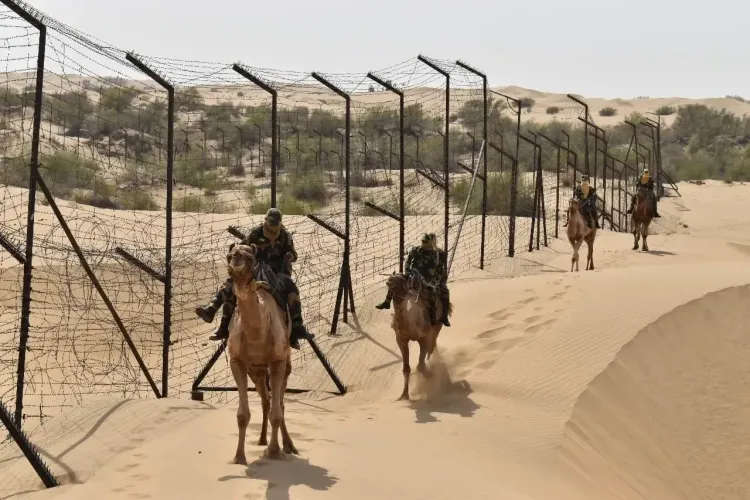Why is public movement restricted within 3-km of the India-Pak border in Rajasthan's Sriganganagar?

Synopsis
Key Takeaways
- The ban on public movement is effective for two months.
- It aims to enhance national security along the India-Pakistan border.
- Farmers are required to seek permission for agricultural activities.
- Increased scrutiny is expected in border areas.
- Rajasthan shares a 1,070-kilometre border with Pakistan.
Jaipur, Nov 13 (NationPress) In response to heightened security measures across Rajasthan following the Delhi blast, the Sriganganagar district administration has enforced a ban on public movement within a three-kilometre radius of the India-Pakistan border for a duration of two months.
The District Collector of Sriganganagar, Dr. Manju, has issued these restrictive orders pertaining to the International Border. This prohibition will remain in effect from 7 p.m. to 6 a.m. daily throughout the next two months. The directive stipulates that no individual may enter the border region without prior permission during this time frame.
For security purposes, the Collector has prohibited the use of bright lighting and noise-producing devices. Farmers operating in the border areas will now be required to obtain consent from the appropriate border post officials before undertaking agricultural activities.
Authorities have warned of repercussions for any farming or other activities conducted within the three-kilometre radius of the border without the necessary permissions.
This decision has been implemented with a focus on national security, aiming to effectively curb cross-border infiltration, smuggling, and various anti-social activities.
Reports indicate a recent surge in the number of weapons and drug shipments being sent from Pakistan using drones. Since 2021, over 60 cases of drone smuggling have been documented, with 56 incidents linked to the Sri Ganganagar border and four to the Bikaner border.
In another notable case, weapons seized from three ISIS-linked individuals recently apprehended by the Gujarat ATS have connections to Hanumangarh district in Rajasthan.
According to ATS officials, these firearms were smuggled into India through border routes. Investigations revealed that the suspects received these weapons via drones dispatched from Pakistan, intending to execute attacks at various locations across the country.
Security agencies anticipate that any suspicious activities near the border will now be scrutinized more rigorously than ever. Rajasthan, sharing a 1,070-kilometre border with Pakistan, has placed the districts of Sri Ganganagar, Hanumangarh, Bikaner, Jaisalmer, and Barmer under heightened surveillance.










